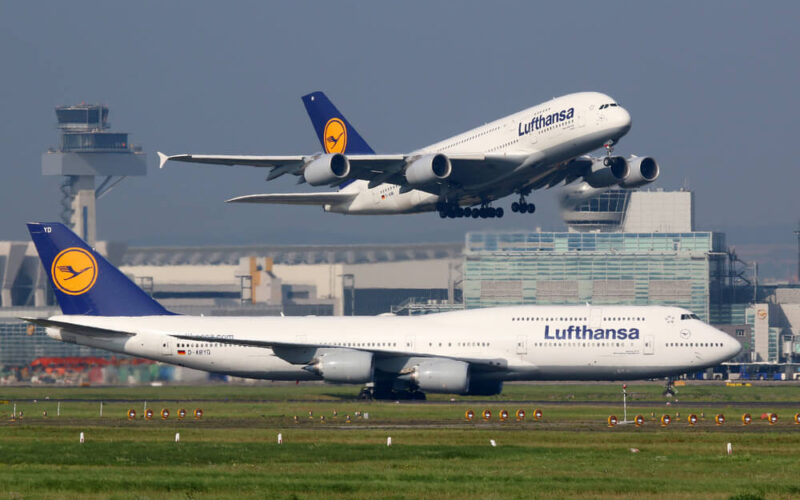Lufthansa (LHAB) (LHA) announced significant changes to its long-term operations due to the current situation related to the outbreak of COVID-19. While the current state of the aviation industry is abysmal, as a majority of airlines have temporarily parked their aircraft, including Lufthansa (LHAB) (LHA) , which stored around 700 aircraft, the medium-term outlook does not look good either.
As a result, the German airline indicated that it would retire some of its biggest gas-guzzlers. Six Airbus A380 double-deckers, seven Airbus A340-600 and five Boeing 747-400 aircraft would not return to the airline’s fleet. Furthermore, three Airbus A340-300, which were operated by Lufthansa Cityline, would also be retired permanently.
Prior to the announced phase-outs, Lufthansa (LHAB) (LHA) had 14 Airbus A380, 34 Airbus A340 and 13 Boeing 747-400 aircraft in its fleet. The six A380s involved in the restructuring effort were already on schedule to be sold back to Airbus in 2022.
The airline also indicated that it will retire eleven Airbus A320.
However, changes to the group’s structure do not end there. The merger of Eurowings under one Air Operator Certificate (AOC) would be accelerated as well: Germanwings is set to cease operations and operate under Eurowings’ AOC. The low-cost carrier’s fleet would be downsized as well. Including the retirement of 10 Airbus A320 jets, the company’s long-haul fleet is also set to be reduced. As of April 1, 2020, Eurowings had 11 Airbus A330 aircraft in its fleet.
Cost-cutting programs, initiated prior to the coronacrisis at Austrian Airlines and Brussels Airlines, are also accelerated. The former planned to reduce the complexity of its short-haul fleet and be only based in Vienna Airport (VIE), as it is under immense pressure from low-cost carriers, while the latter is aiming to achieve at least an 8% profit margin with significant changes coming to its route network.
Moreover, Swiss International Air Lines, which fairly recently received its first Airbus A320neo aircraft, will try to control its fleet size by deferring narrow-body aircraft deliveries. An option to retire its older long-haul planes is also on the table, indicated the airline group.

